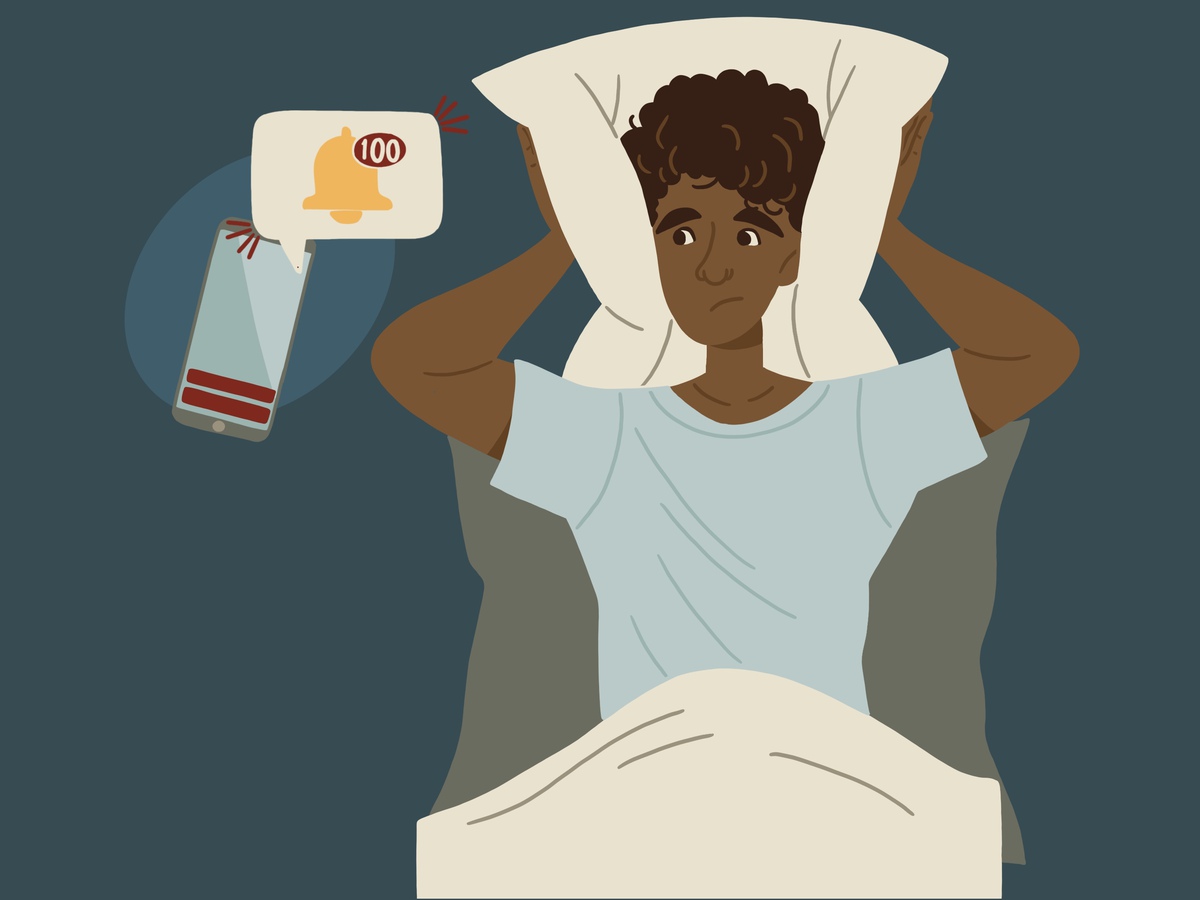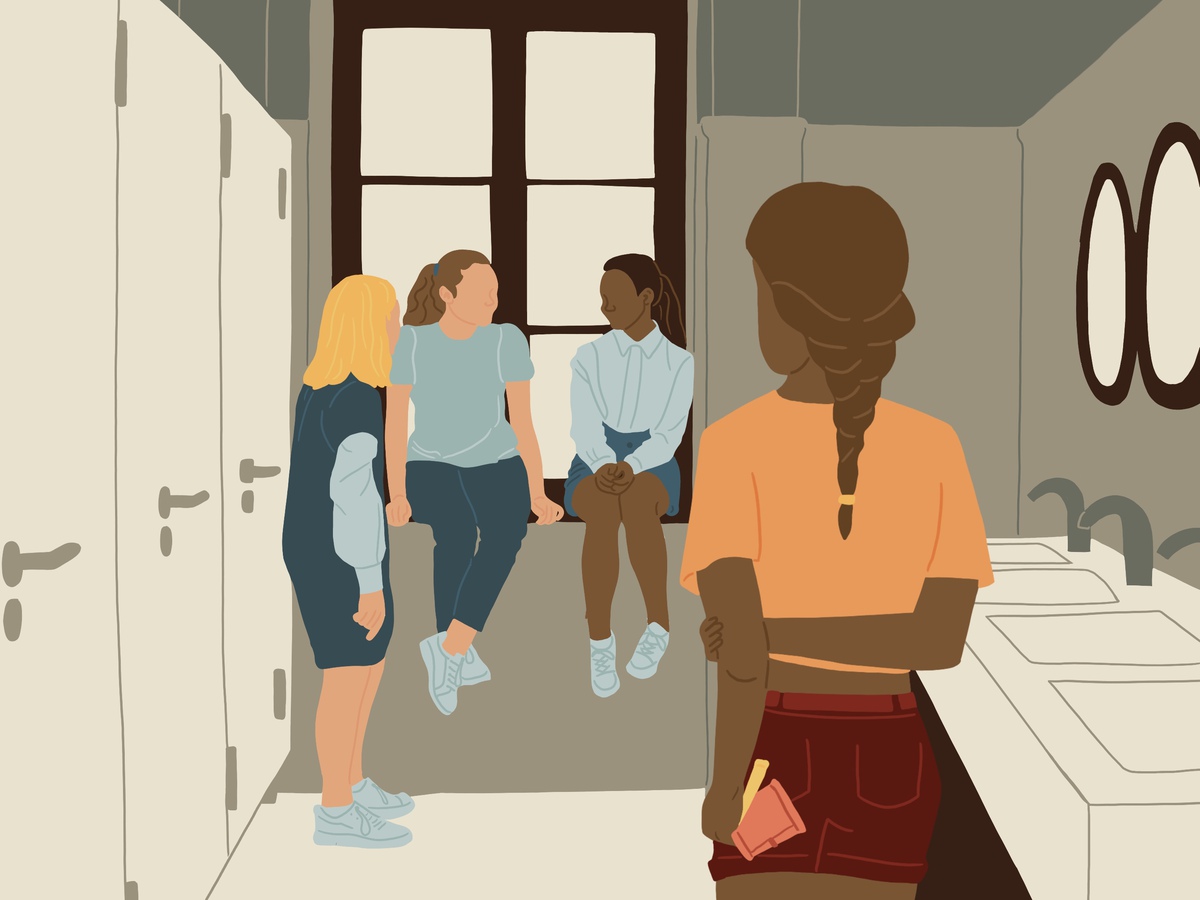Every day last summer, Grace Dai, sophomore, spent around three hours in the searing heat preparing for her upcoming tennis tryouts. She played in tournaments, took classes and practiced with her brother and friends in hopes of making varsity tennis in the fall.
While this schedule was intended to help Dai build her skills, the exertion led her to suffer from leg and arm injuries, including a ripped muscle.
“The more I played, the worse I thought I was getting,” Dai said. “As tryouts approached, I got more stressed, and it was about that time I had a breakdown.”
You want to use the stress to motivate you to prepare, but you don’t want to tip over into too much stress where you’re overwhelmed.
— Dr. Tony Buchanan
Now, Dai looks back and understands how excessive her stress was but appreciates how a manageable amount of stress pushes her to succeed.
“I’m stressed because I want to do good, and so that stress furthers my reach and my potential,” Dai said. “It kind of acts like a motivator; it drives you to do what you want, but also it only works in microdoses.”
Like Dai, students at MHS and across America undergo the ups and downs of stress. Although stress is often a negative experience for many students, experts say properly managed stress can be beneficial.
Understanding Stress
Dr. Tony Buchanan, professor of psychology and co-director of the neuroscience program at Saint Louis University, often emphasizes that the impact of stress depends on how much a person has in their life.
“You want to use the stress to motivate you to prepare, but you don’t want to tip over into too much stress where you’re overwhelmed,” Dr. Buchanan said.
Stress becomes unhealthy when it takes a toll on a person’s mental and physical health, Dr. Buchanan said; however, small doses of stress are beneficial for optimal performance. The goal is to find the Goldilocks zone, where a person experiences just the right amount of stress.
The amount of stress is not the only factor that shapes a person’s experience under stress.
“How you think about stress determines how it affects you,” Dr. Buchanan said.

To manage stress, Dr. Roberta Donahue, professor of health science at Truman State University, advocates for self-awareness.
“Everybody’s body will send signals to tell people that they need to manage their stress better at various times,” Dr. Donahue said.
Signals of chronic stress can include insomnia and headaches, but they differ among each person. Creating a plan to deal with stress, rather than ignoring these signals, can make it less overwhelming. 4-7-8 breathing, physical activity, adequate sleep and even laughter are strategies that can help in coping with stress.
“It’s hard because when we’re really busy the things we tend to cut are the things that would help our stress level,” Dr. Donahue said.
Although stress can be reduced, it cannot be eliminated. Acknowledging stressful moments in life creates an appreciation for when that stress is resolved, Dr. Donahue said.
“You have to have these contrasts in life where you’re aware that you’re stressed and you put your best effort into it and then it’s over,” Dr. Donahue said. “You feel that relief and you’re aware that you’re more relaxed now. You feel accomplished because you did something.”
Utilizing Stress
Jayla Freeman, senior, understands that stress has benefits and drawbacks.

“It can be a good motivator, but then I feel like sometimes if I’m too stressed out about something and feel like I have too much to do, then I just have no motivation to do anything at all,” Freeman said.
Balancing multiple extracurriculars, such as Student Council, the Superposition club and National Honors Society, while finishing college applications means that Freeman often has to focus on managing her stress effectively.
“This year, I’ve gotten a lot better at getting things done the day they’re assigned rather than pushing them off until the day they’re due,” Freeman said. “I’m still stressed out, but I feel like I can manage it better and know how to see what might be stressful in the future and prevent that now.”
Joshua Wyckhouse, junior, similarly has to balance his extracurricular activities, from football and National Honor Society to Boy Scouts, outside of school.
Wyckhouse said a lot of people don’t know how to handle their stress and learning how to manage it mostly takes time and practice.
I think a lot of character development can come out of stressful situations. We can learn from our experience how we might tackle a situation in the future and tackle it differently.
— Erin Sullenger
“You’re not going to immediately know how to handle stress,” Wyckhouse said.
Wyckhouse often feels stressed before football games and tests that he hasn’t prepared for, but he said stress is often a motivator for him if he plans ahead properly.
“It can allow you to do things faster, and in certain circumstances, make you work harder,” Wyckhouse said.
Management Strategies
Erin Sullenger, social studies teacher, agreed that stress being positive or negative depends on how someone copes with it.
“What we have to consider is how we address it and whether we allow it to shut us down or whether it actually becomes a motivator to get things done,” Sullenger said.

Sullenger said that everyone should have coping mechanisms for stress rather than attempting to avoid the cause of it entirely. She suggests breaking things down into small steps to handle them better or rewarding yourself when you reach a certain milestone or goal as a few.
“I think a lot of character development can come out of stressful situations,” Sullenger said. “We can learn from our experience how we might tackle a situation in the future and tackle it differently.”
This story was originally published on Marquette Messenger on February 14, 2024.





![With the AISD rank and GPA discrepancies, some students had significant changes to their stats. College and career counselor Camille Nix worked with students to appeal their college decisions if they got rejected from schools depending on their previous stats before getting updated. Students worked with Nix to update schools on their new stats in order to fully get their appropriate decisions. “Those who already were accepted [won’t be affected], but it could factor in if a student appeals their initial decision,” Principal Andy Baxa said.](https://bestofsno.com/wp-content/uploads/2024/05/53674616658_18d367e00f_o-1200x676.jpg)






![Junior Mia Milicevic practices her forehand at tennis practice with the WJ girls tennis team. “Sometimes I don’t like [tennis] because you’re alone but most of the time, I do like it for that reason because it really is just you out there. I do experience being part of a team at WJ but in tournaments and when I’m playing outside of school, I like that rush when I win a point because I did it all by myself, Milicevic said. (Courtesy Mia Milicevic)](https://bestofsno.com/wp-content/uploads/2024/06/c54807e1-6ab6-4b0b-9c65-bfa256bc7587.jpg)








![The Jaguar student section sits down while the girls basketball team plays in the Great Eight game at the Denver Coliseum against Valor Christian High School Feb. 29. Many students who participated in the boys basketball student section prior to the girls basketball game left before half-time. I think it [the student section] plays a huge role because we actually had a decent crowd at a ranch game. I think that was the only time we had like a student section. And the energy was just awesome, varsity pointing and shooting guard Brooke Harding ‘25 said. I dont expect much from them [the Golden Boys] at all. But the fact that they left at the Elite Eight game when they were already there is honestly mind blowing to me.](https://bestofsno.com/wp-content/uploads/2024/05/IMG_7517-e1716250578550-900x1200.jpeg)









![BACKGROUND IN THE BUSINESS: Dressed by junior designer Kaitlyn Gerrie, senior Chamila Muñoz took to the “Dreamland” runway this past weekend. While it was her first time participating in the McCallum fashion show, Muñoz isn’t new to the modeling world.
I modeled here and there when I was a lot younger, maybe five or six [years old] for some jewelry brands and small businesses, but not much in recent years,” Muñoz said.
Muñoz had hoped to participate in last year’s show but couldn’t due to scheduling conflicts. For her senior year, though, she couldn’t let the opportunity pass her by.
“It’s [modeling] something I haven’t done in a while so I was excited to step out of my comfort zone in a way,” Muñoz said. “I always love trying new things and being able to show off designs of my schoolmates is such an honor.”
The preparation process for the show was hectic, leaving the final reveal of Gerrie’s design until days before the show, but the moment Muñoz tried on the outfit, all the stress for both designer and model melted away.
“I didn’t get to try on my outfit until the day before, but the look on Kaitlyn’s face when she saw what she had worked so hard to make actually on a model was just so special,” Muñoz said. “I know it meant so much to her. But then she handed me a blindfold and told me I’d be walking with it on, so that was pretty wild.”
Caption by Francie Wilhelm.](https://bestofsno.com/wp-content/uploads/2024/05/53535098892_130167352f_o-1200x800.jpg)








